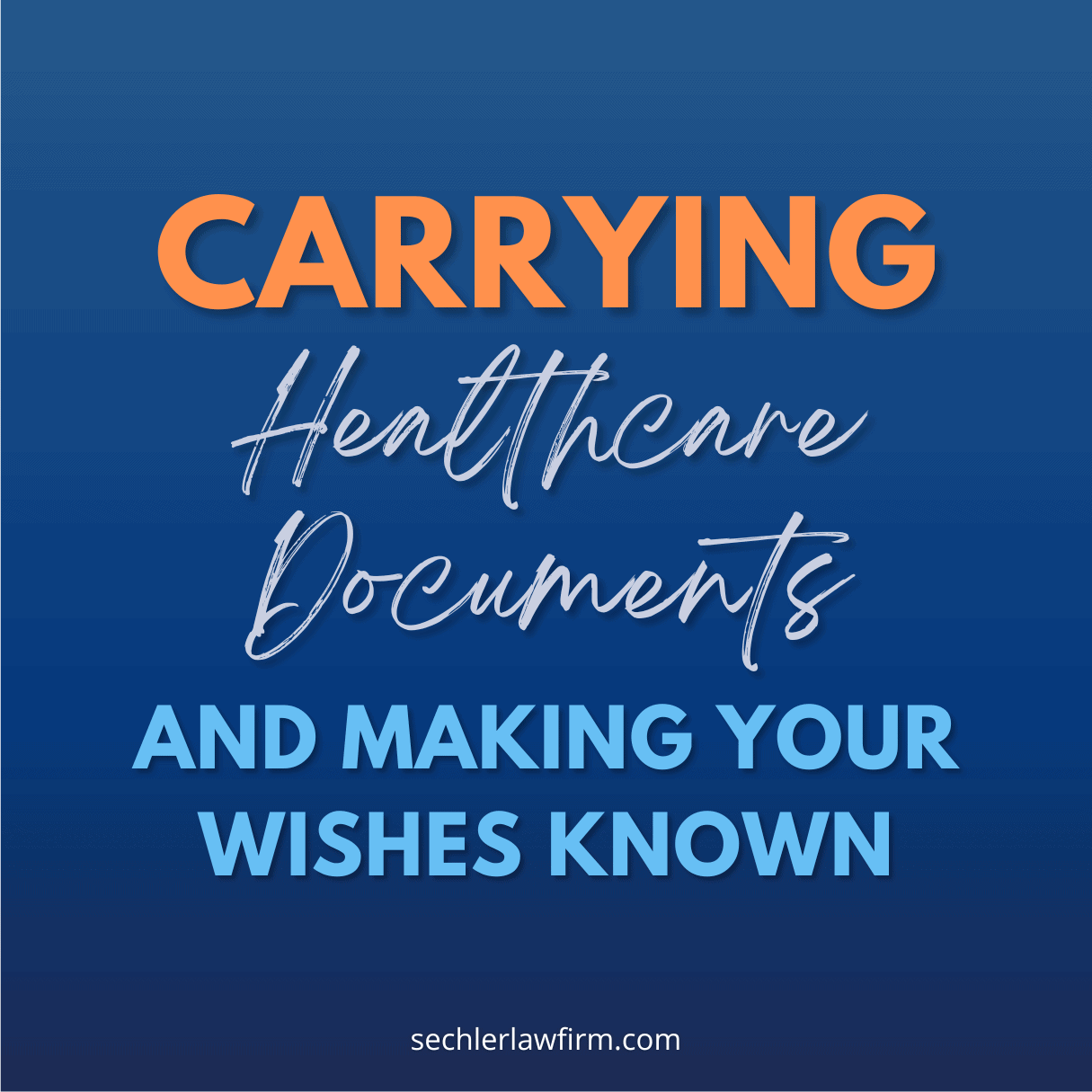In the event of a medical emergency, it’s crucial to have your healthcare documents readily accessible, to ensure that your treatment preferences are known to emergency personnel. Our team of lawyers have put together this article to explain the benefits of carrying your directives with you. We offer tips on effectively communicating your wishes to emergency responders.
The Importance of Carrying Healthcare Documents
Healthcare documents will also designate a person to make decisions on your behalf if you become incapacitated. These documents include advance directives, living wills, or healthcare powers of attorney, outline your medical treatment preferences. Carrying these documents with you offers several benefits:
- Timely access to your medical preferences:
In an emergency, medical personnel must act quickly, and having your healthcare documents on hand can help ensure that your wishes are known and respected in a timely manner. - Reduced stress for family members:
Having your documents readily available can alleviate the burden on your loved ones, who might have to make difficult decisions on your behalf without knowing your preferences.
- Avoidance of unwanted treatments:
In the absence of clear instructions, medical professionals may provide treatments that you would have preferred to avoid. Carrying your documents can help prevent this.
Tips for Communicating Your Wishes to Emergency Personnel
- Carry a wallet card:
Keep a card in your wallet that indicates the existence of your healthcare documents. These documents should provides contact information for your healthcare agent.
- Utilize a medical ID bracelet or necklace:
Wear a medical ID that clearly states your healthcare preferences or directs emergency personnel to your healthcare documents. Make sure the information is easy to read and understand.
- Store documents electronically:
Consider using a secure online service to store your healthcare documents. They should be accessible to medical personnel in emergencies. Many hospitals have electronic medical record systems that can access these documents if provided with the necessary information.
- Notify your emergency contacts:
Make sure your emergency contacts are aware of your healthcare documents and preferences. Provide them with copies of your documents and instruct them on how to access your online records if necessary.
Conclusion
Navigating the complexities of healthcare documents and effectively communicating your wishes to emergency personnel is so important. Ideally, you want to ensure that your medical treatment preferences are respected during emergencies and increase the likelihood that your wishes will be honored. This will certainly give you and your loved ones peace of mind.
If you find yourself needing assistance with creating these essential documents, don’t hesitate to reach out for professional help. We are just a phone call away. To schedule a consultation, contact us at 724 546 4227 and be sure to mention this blog post. We’re here to help guide you through the process, ensuring that your healthcare preferences are well-documented and respected.









